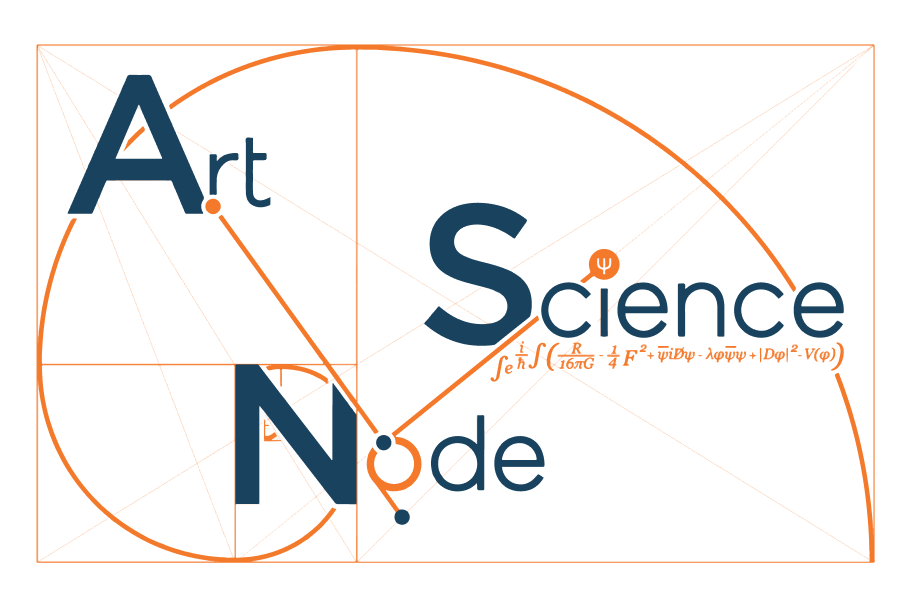SPIN-FERT ART & SCIENCE ACTIVITIES
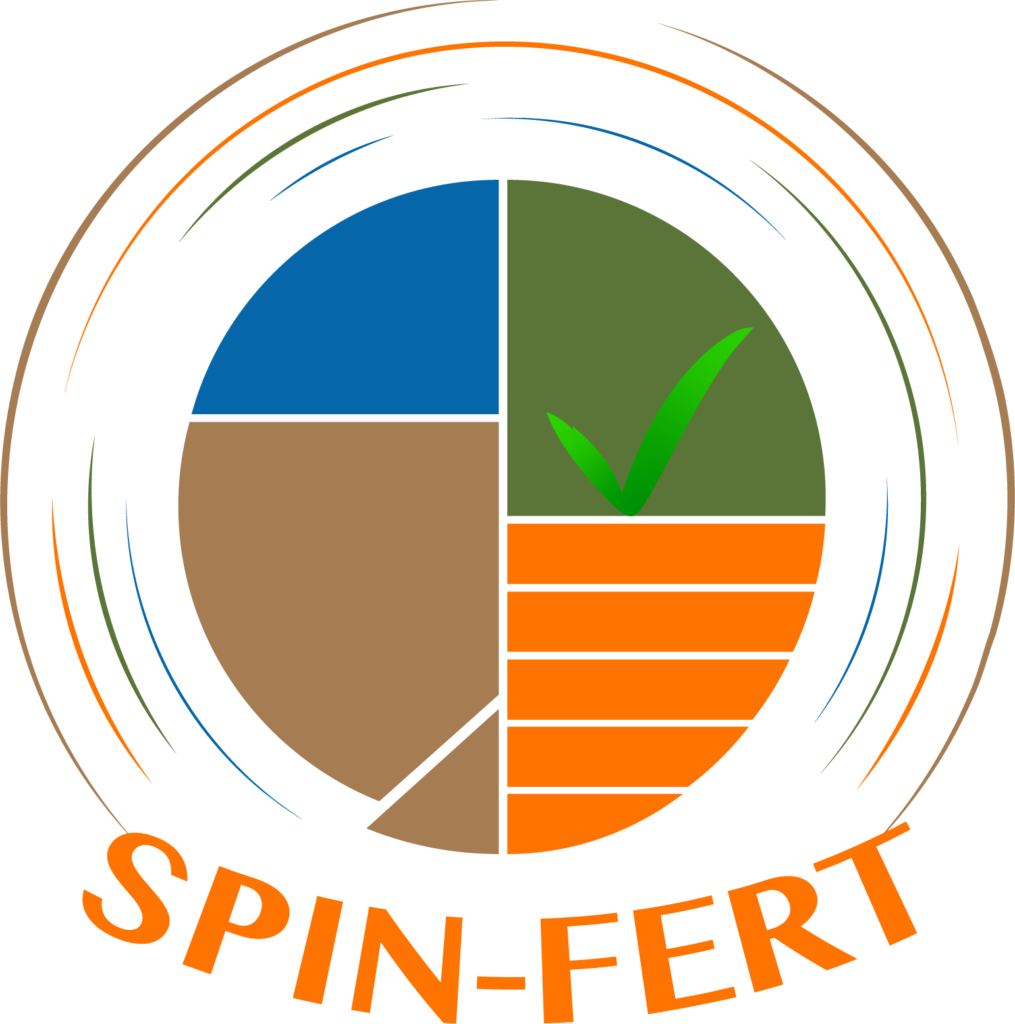

2025
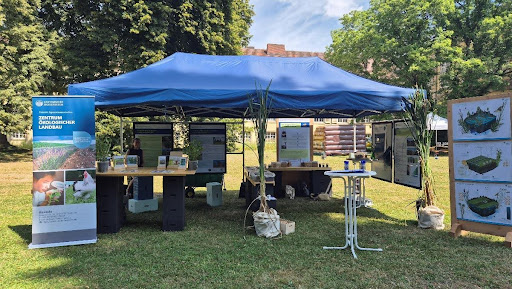
July 5, 2025
Spin-Fert at the University of Hohenheim’s Open Day 2025 On July 5, 2025, the University of Hohenheim hosted its annual Open Day, where the Spin-Fert and Moor-Power projects shared a booth highlighting peatland protection and peat alternatives. Spin-Fert Team engaged over 130 visitors with a smell-based memory game comparing different growing media. Guests could also explore a hands-on display of peat alternatives, sparking lively discussions on their use and environmental benefits. Meanwhile, Moor-Power offered a quiz on peatlands, climate protection, and renewable energy. Together, the activities raised awareness of sustainable horticulture and ecosystem care.
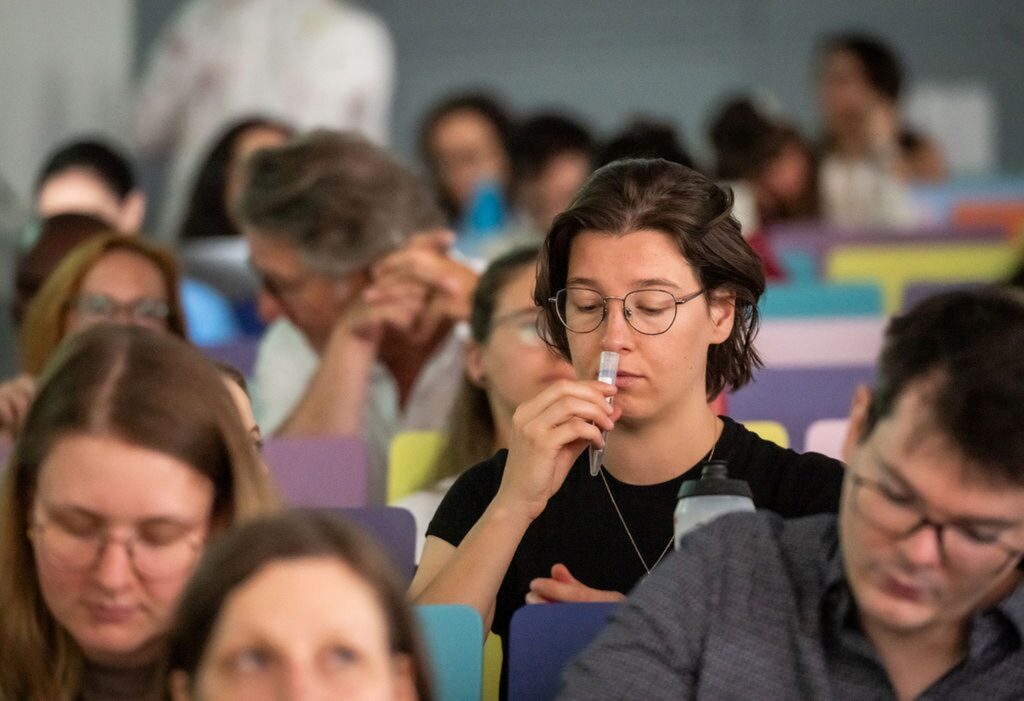
July 1–4, 2025
BAGECO 2025: Bacteria Drive Our Planet’s Health The 17th International Symposium on Bacterial Genetics and Ecology (BAGECO), held in Graz, Austria, gathered 230 scientists from 37 countries to explore how bacteria shape planetary health, linking microbiomes, climate change, biodiversity, and human well-being. Thee BAGECO was opened with the “Breath of Soil: Memory Nexus,” a participatory action inviting attendees to smell the soil sample prepared by the TUG SPIN-FERT Team and record the memories it evoked. These recollections composes a RNA memory molecule — a poetic bridge between soil, science, and collective memory — setting a reflective and connective tone for the symposium.
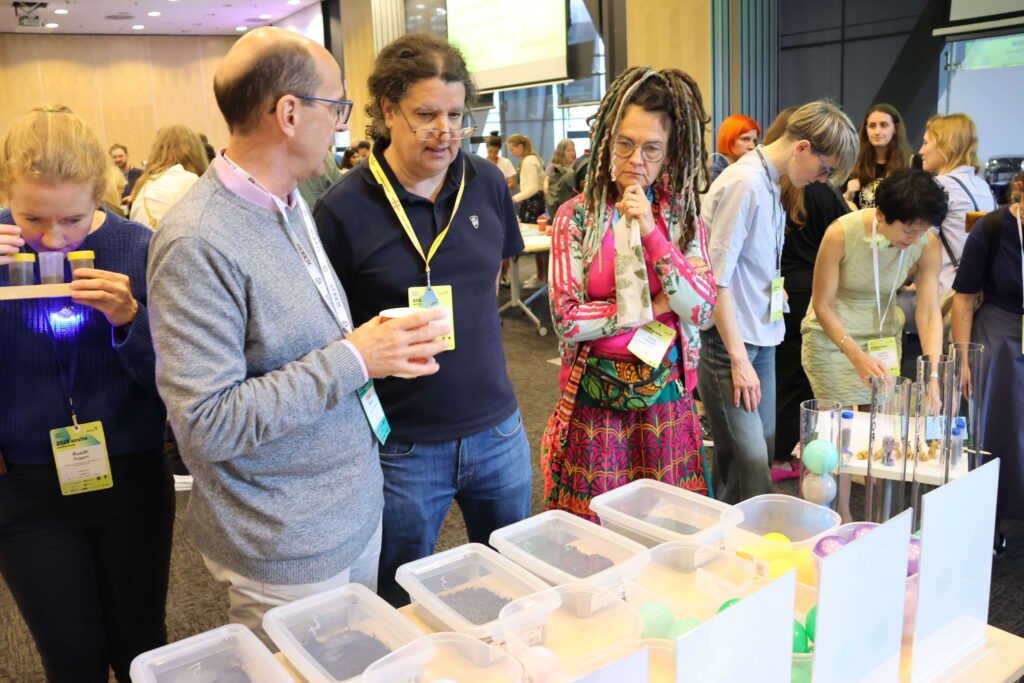
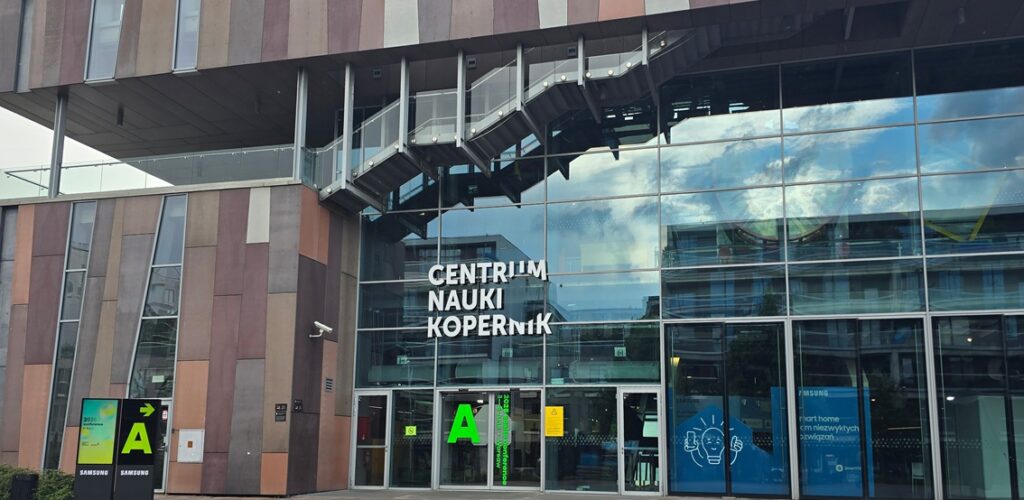
June 3–5, 2025
Ecsite 2025 : A Global Gathering of Science Engagement From June 3 to 5, 2025, the Copernicus Science Centre in Warsaw, Poland, hosted the Ecsite 2025 Conference, bringing together over 950 science communicators and professionals from more than 50 countries.
Ecsite – Grand Bazar Prof. Dr. hab. Eligio Malusa and Prof. Dr. hab. Joanna Hoffmann presented SPIN-FERT’s interdisciplinary research through immersive, participatory experiences, including compost assessment by smell and imagining soil complexity through music. The participants were also introduced to Memory Nexus – an art–science project connecting soil, memory, and scent. Participants contributed personal reflections, creating their unique “memory molecule” as part of a growing collective Memory Nexus archive. more info
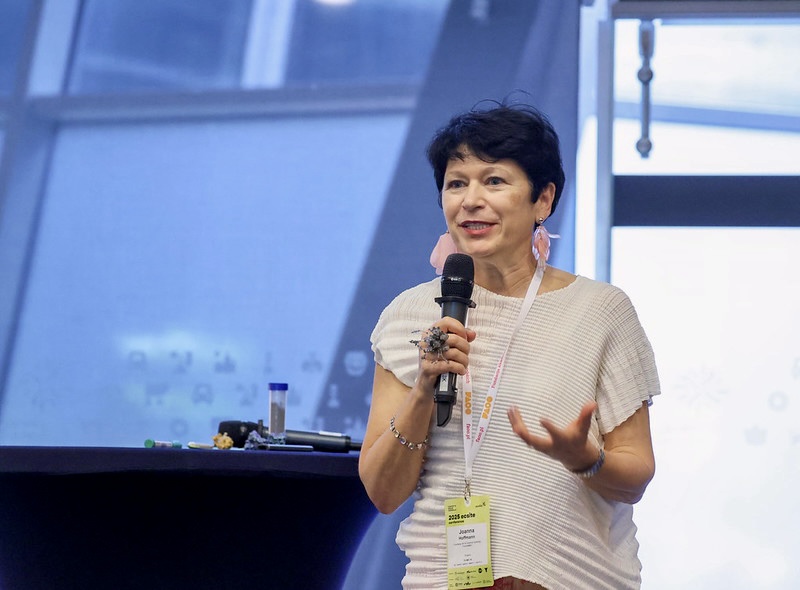
June 5, 2025
Ecsite – Panel: Rethinking the Care of Water and Soil from the Perspective of Female Researchers and Artists In a dynamic, inspiring dialogue, Prof. Dr. Joanna Hoffmann (FASSF Art & Science Node Berlin / University of the Arts in Poznań), Prof. Dr. Magdalena Frąc (Institute of Agrophysics, Polish Academy of Sciences), Dr. Jill Scott (LASER Zurich, Zurich University of the Arts), and Dr. Kristy Deiner (SimplexDNA, Environmental Systems ETH Zurich) explored transdisciplinary approaches to biodiversity, soil and water health, and citizen engagement.
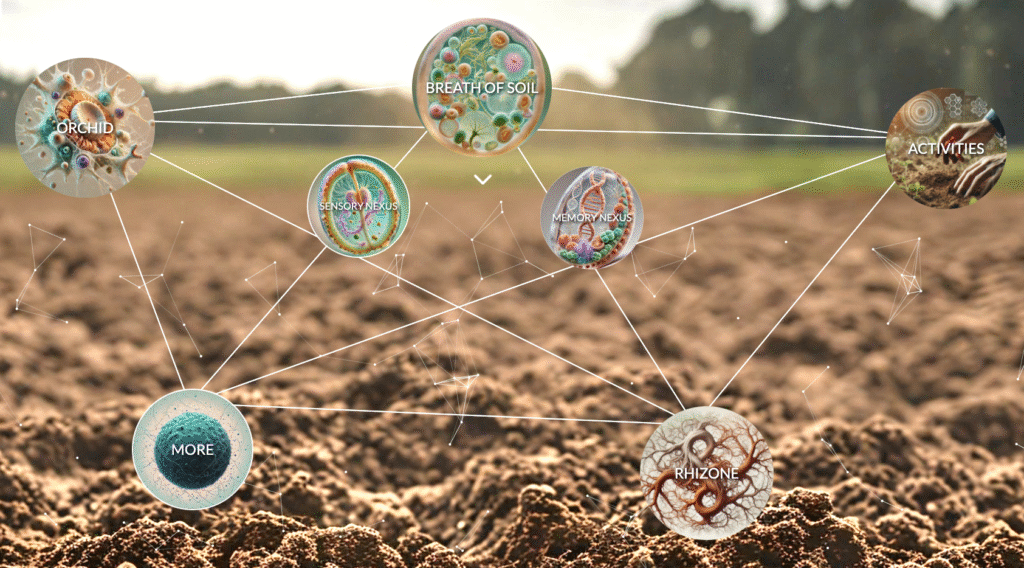
May 29, 2025
Webinar “Social Sciences, Humanities, and Arts in the Natural Sciences” and “Mission Soil” Prof. Dr Joanna Hoffmann was a speaker at the webinar “Social Sciences, Humanities, and Arts in the Natural Sciences” and “Mission Soil” organised by the National Centre for Research and Development (NCBR).
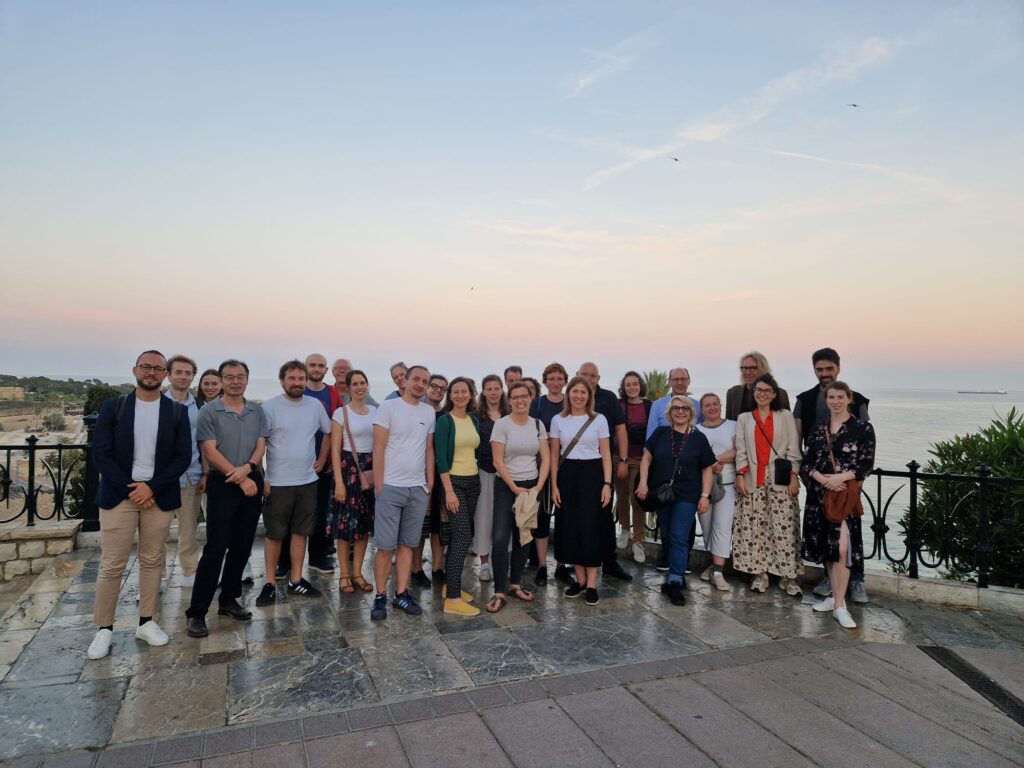
May 28–30, 2025
SPIN-FERT General Assembly: The SPIN-FERT consortium gathered in Tarragona, Spain, for its General Assembly Meeting. A three-day event featured scientific presentations, strategic discussions, and collaboration across work packages, all aimed at advancing sustainable soil and substrate management. Hosted by EURECAT, the meeting brought together researchers, project partners, and collaborators from across Europe. As a Leader of WP1, Prof. Dr. Joanna Hoffmann presented the project’s Dissemination, Communication, and Exploitation (DCE) activities. Her presentation included a review of current outreach efforts, a discussion of future dissemination strategies, and opportunities for collaboration with other EU Mission Soil projects. more info
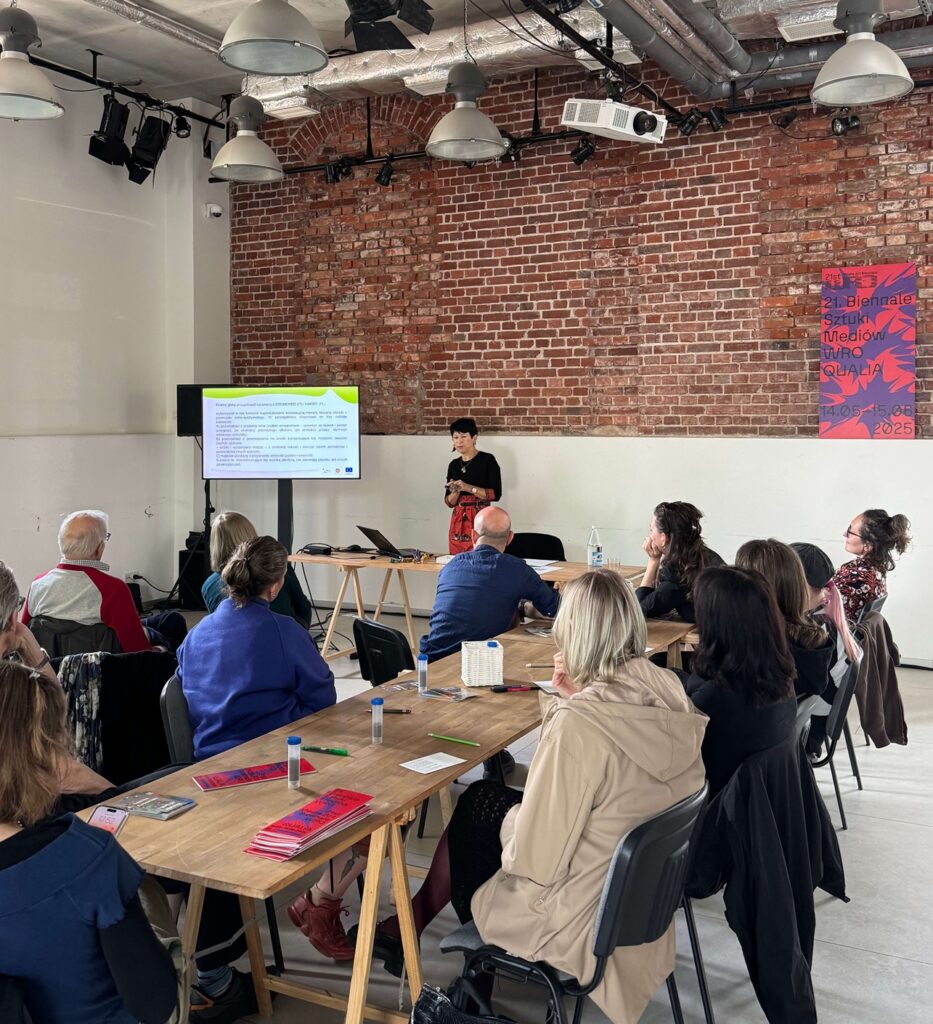
May 16, 2025
The Breath of Soil: Memory Nexus at WRO Biennale 2025 Performing Arts Centre, Wrocław
As part of the 21st WRO Media Art Biennale, themed Qualia, the workshop “The Breath of Soil: Memory Nexus” offered participants an immersive exploration into the intersections of human memory, olfactory perception, and soil ecology. Led by Prof. Dr. Joanna Hoffmann and assisted by Mateusz Janik, the session was a component of the broader SPIN-FERT project under the Horizon Europe “Mission Soil” program. Participants contributed personal reflections evoked by the smell of soil samples and created their unique “memory molecule” as part of a growing collective Memory Nexus archive. more info
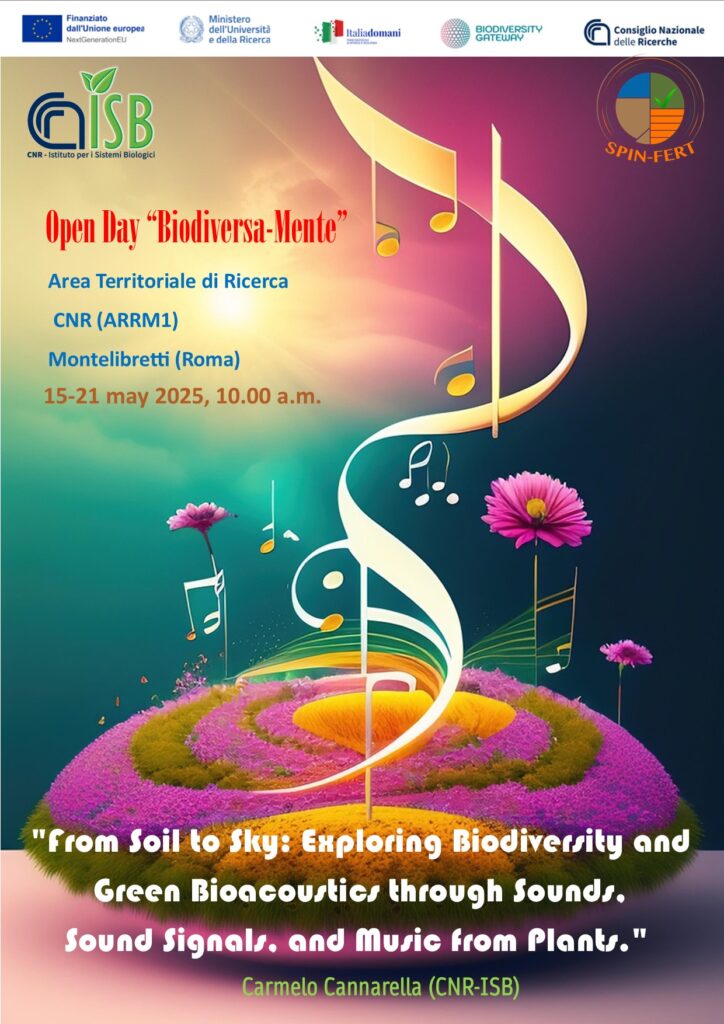
May 15 – May 21, 2025
CNR-ISB Open Day “Biodiversa-Mente” On May 15 and 21, 2025, the National Research Council of Italy (CNR) hosted the open day “Biodiversa-Mente” in Montelibretti to engage high school students with biodiversity and climate change. The CNR Institute for Biological Systems (CNR-ISB) offered workshops linking directly to the SPIN-FERT project, including Carmelo Cannarella’s “From Soil to Sky”, where plant bioacoustics transformed electrical signals into sound, and Flavia Pinzari’s “Fungal Biodiversity”, highlighting fungi’s ecological functions. Both activities emphasized how soil quality—central to SPIN-FERT—shapes plant health, ecosystem resilience, and innovative approaches to sustainability.
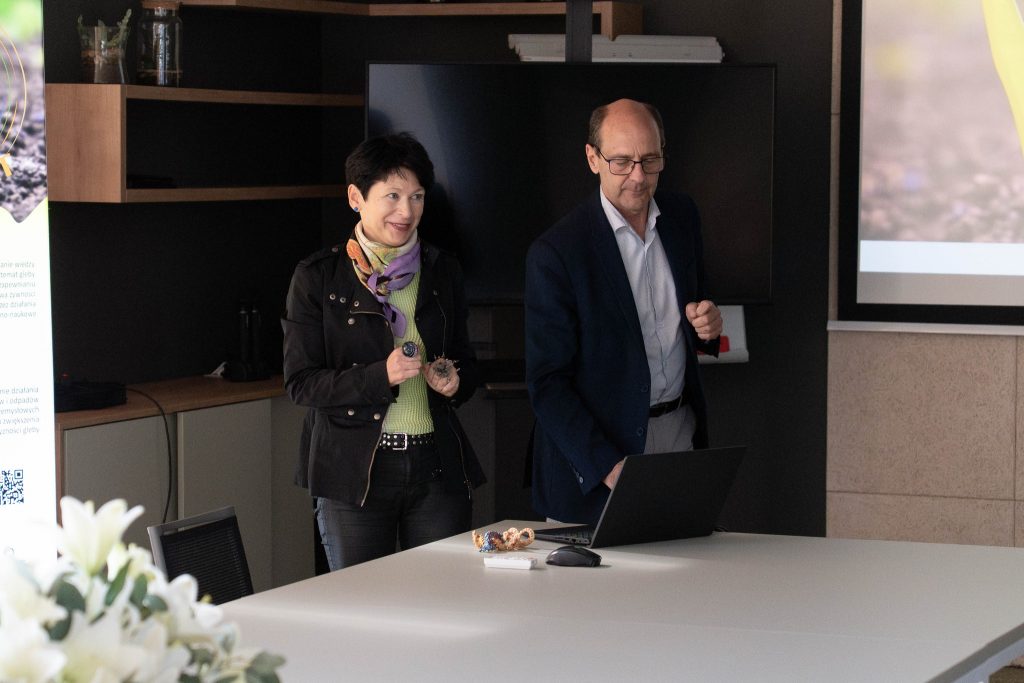
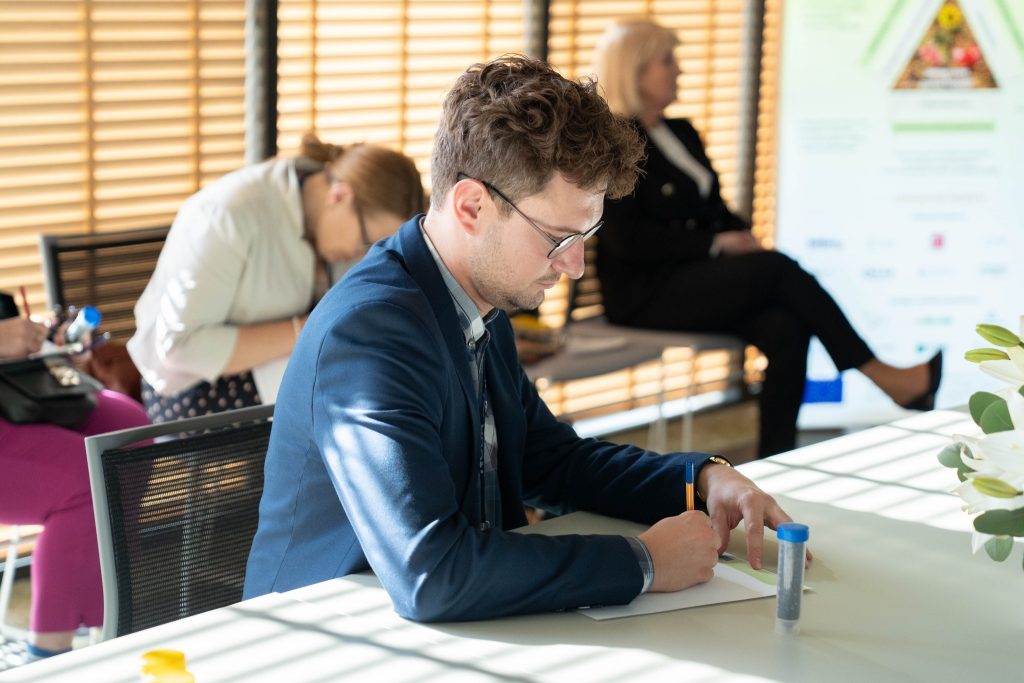
May 12-13, 2025
EU Innovation Journey’25 conference Poland’s National Centre for Research and Development; Commissioned by the European Innovation Council, The Tides, Warsaw / InHORT Skierniewice
The conference gathered over 500 participants, including deep-tech leaders, policymakers, investors, and academics, to discuss bridging the innovation gap in Central and Eastern Europe. A highlight of the INHORT site-visit program was the SPIN-FERT workshop, which immersed attendees in the “Memory Nexus” and “Compost Senses and Music” activities—creative formats aimed at raising public awareness through interdisciplinary art and science communication.
Prof. Dr. Joanna Hoffmann also visited the scientific laboratories, together with the SPIN-FERT research team, gaining insight into their cutting-edge facilities and interdisciplinary approach.
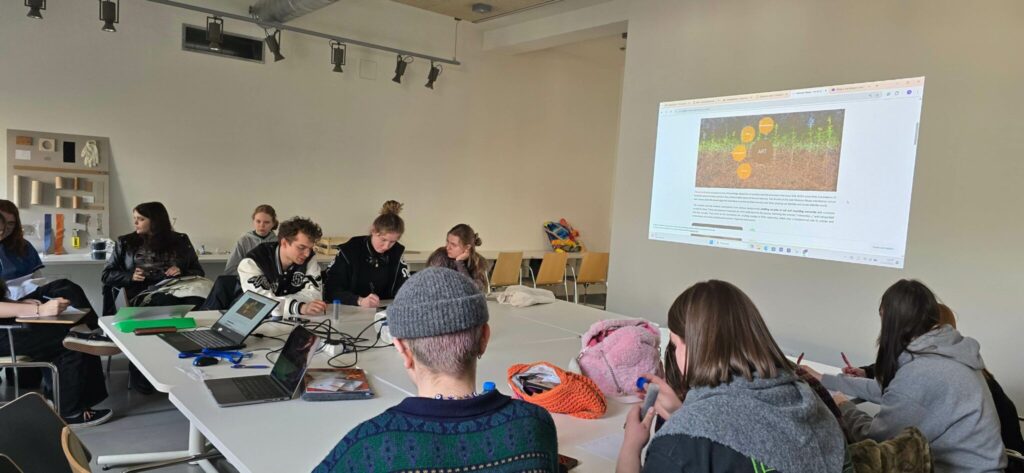
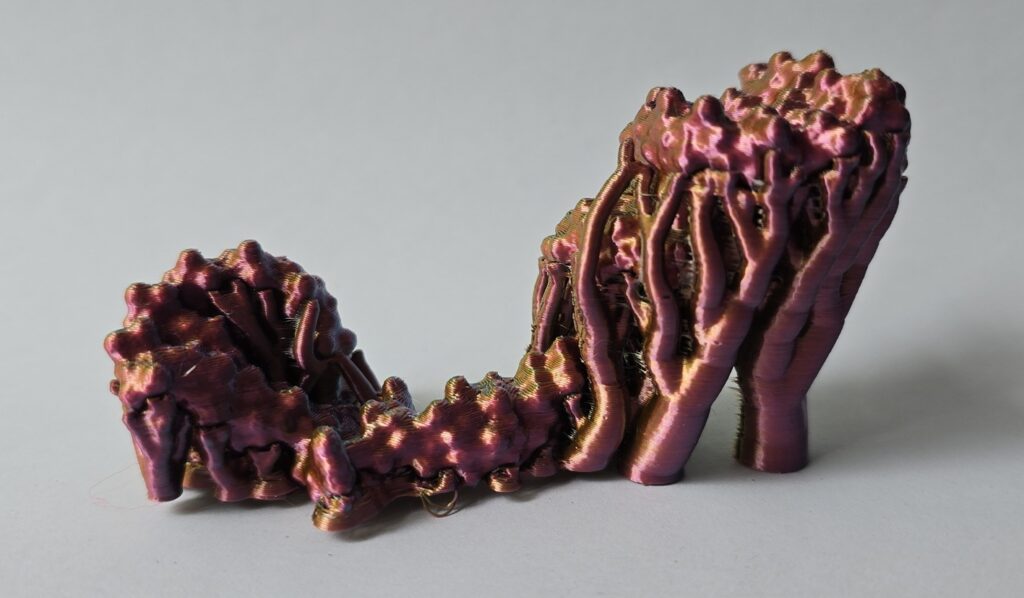
March 17, 2025
The Breath of Soil – Memory Nexus / University of Arts in Poznań Workshop for art students led by Prof. Dr. Joanna Hoffmann and assistant Mateusz Janik
Students of the University of Arts in Poznań took part in an interdisciplinary workshop combining natural sciences with artistic exploration as part of the European project SPIN-FERT /Mission Soil. The Breath of Soil: Memory Nexus is a participatory art & science project in which scent acts as a link between soil memory and human memory. It also refers to scent as one of the basic communication tools in nature’s networks. The original “ memory molecule” resulted from the workshop contributing the the Memory Nexus Archive. more info
2024
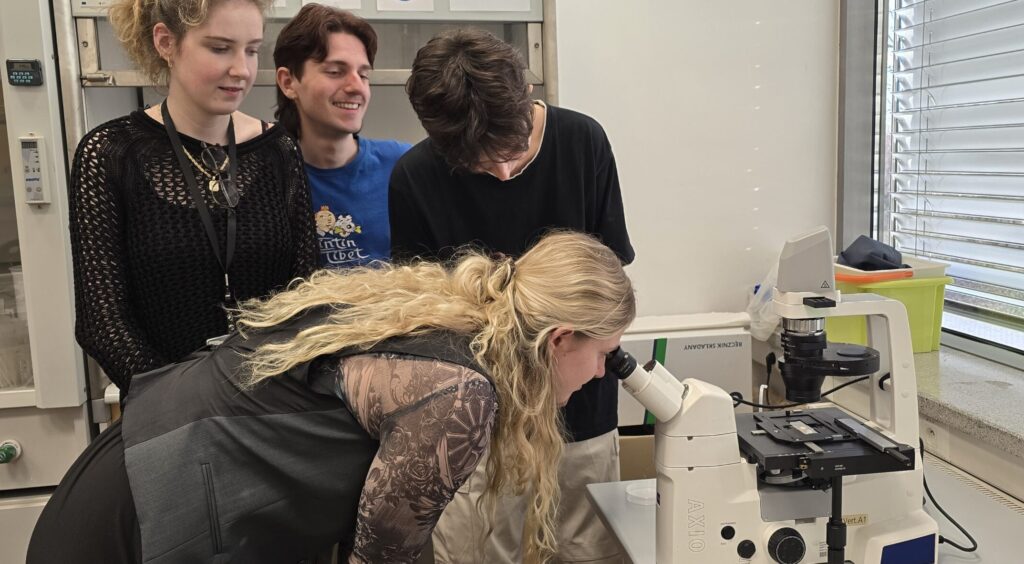
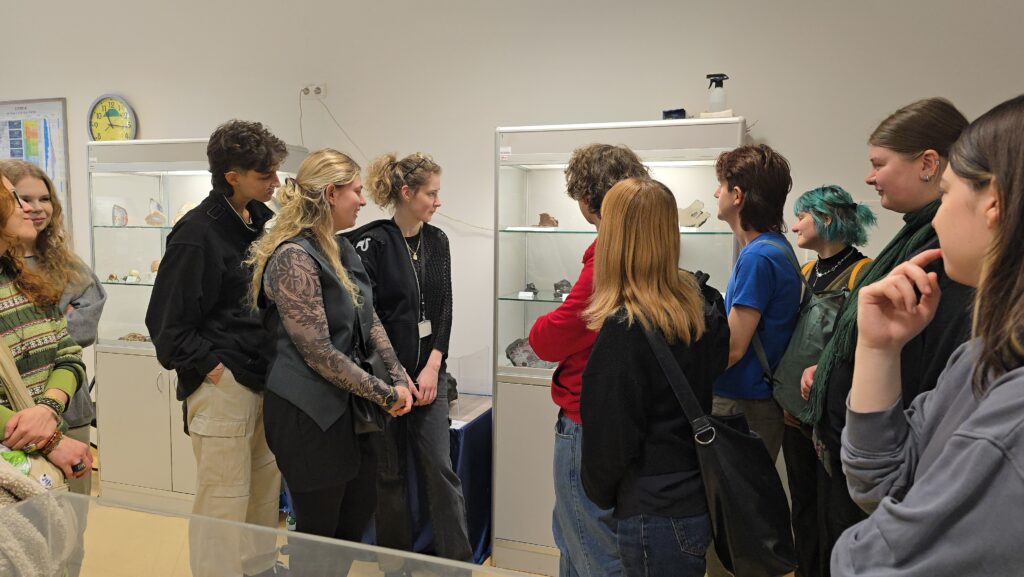
November 26, 2024
Science-Art-Education: Earth and Wetlands On November 26, 2024, art students from the University of Arts in Poznań—studying in the Studio for Transdisciplinary Projects and Research led by Prof. Dr. Joanna Hoffmann—visited the Faculty of Geography and Geology at Adam Mickiewicz University. They began with a tour of the Museum of Earth, exploring Central Europe’s geological history and the interplay of art and science, followed by a hands-on peat-core analysis workshop with Prof. Dr Mariusz Lamentowicz and his PhD students, examining a 1,200-year record from the Kusowo peatbog to reveal how microscopic details illuminate past ecological changes.
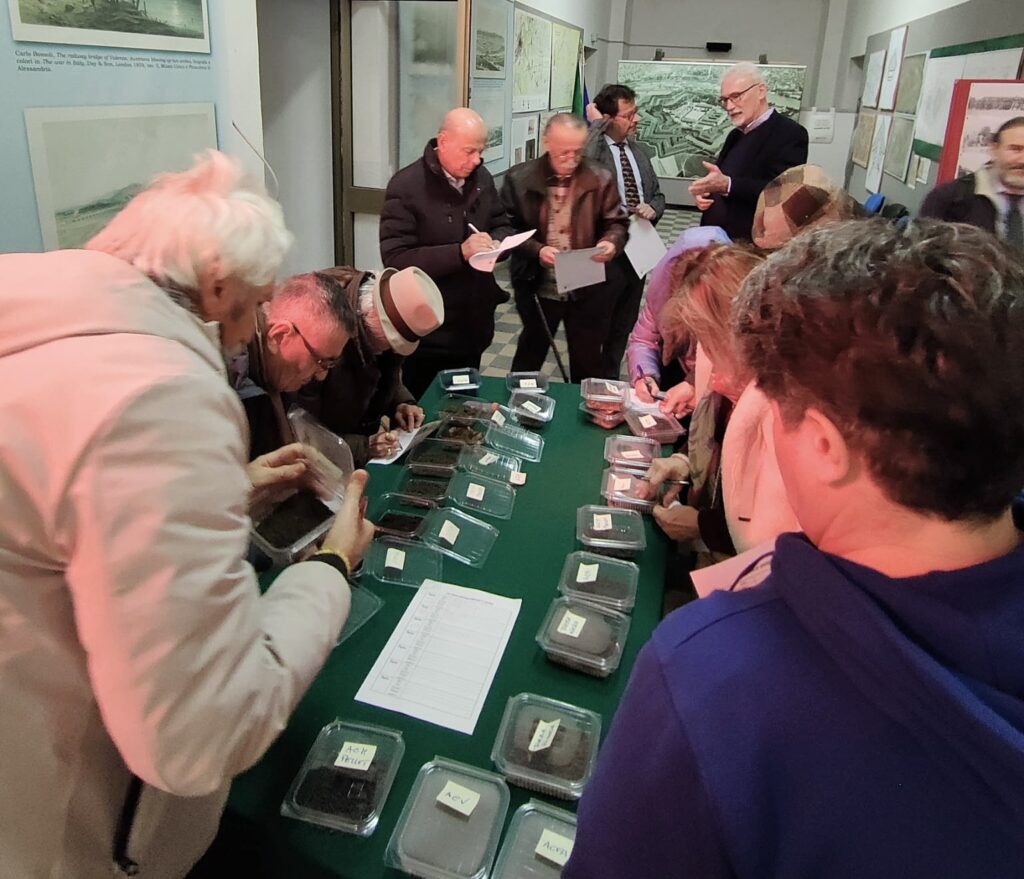
November 21, 2024
SPIN-FERT celebrates the Italian National Day of the Tree On November 21, 2024, in Alessandria, Italy, SPIN-FERT marked the Italian National Day of the Tree by participating in the ROOTS for GROWING conference, organised by the Academy of Agriculture of Turin and hosted by Fondo Ambiente Italiano.
The event concluded with an engaging workshop introducing the Memory Nexus art-science project to around 30 participants. Attendees were invited to smell a soil substrate prepared by ENOMONDO and reflect on the memories and emotions the scent evoked. This multisensory experience revealed personal connections to soil and nature, highlighting the cultural and psychological dimensions of sustainable horticulture.
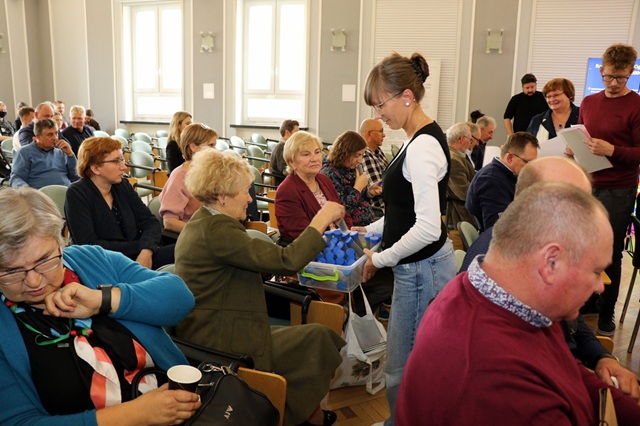
October 24, 2024
“Innovations in the organic horticultural production”, Institute of Horticulture, Skierniewice, Poland
The SPIN-FERT project was presented to around 400 professionals—including farmers, agricultural advisors, and researchers—during the Innovations in Organic Horticultural Production conference organized by National Institute of Horticultural Research (INHORT). One of the key parts of the program was the Breath of Soil: Memory Nexus workshop, led by Prof. Dr Joanna Hoffmann, which offered participants a distinctive olfactory experience with peat-free substrates, using specially prepared soil samples developed by ENOMONDO and INHORT. The smell of the soil evoked personal memories, which became the foundation for the creation of Memory Nexus: Molecule 02. Visitors also had the opportunity to explore the Senses of Soil exhibition, engaging them in an interactive journey through the soil properties using all five human senses. more info
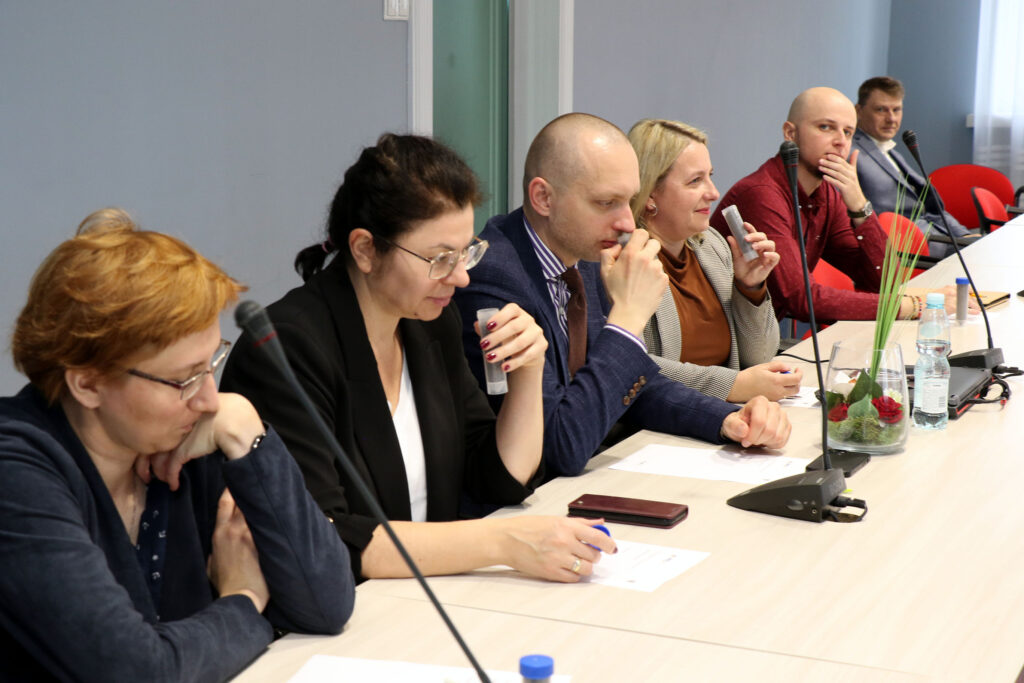
October 24, 2024
Press Conference: SPIN-FERT Project Media Briefing The SPIN-FERT project was introduced to the media at the National Institute of Horticultural Research (INHORT), Skierniewice, with a focus on advancing soil health and the development of peat-free substrates. Presentations were delivered by Polish project partners, including Prof. Eligio Malusà, Prof. Dr. Joanna Hoffmann, Dr. Krzysztof Ambroziak, and Prof. Magdalena Frąc. more info
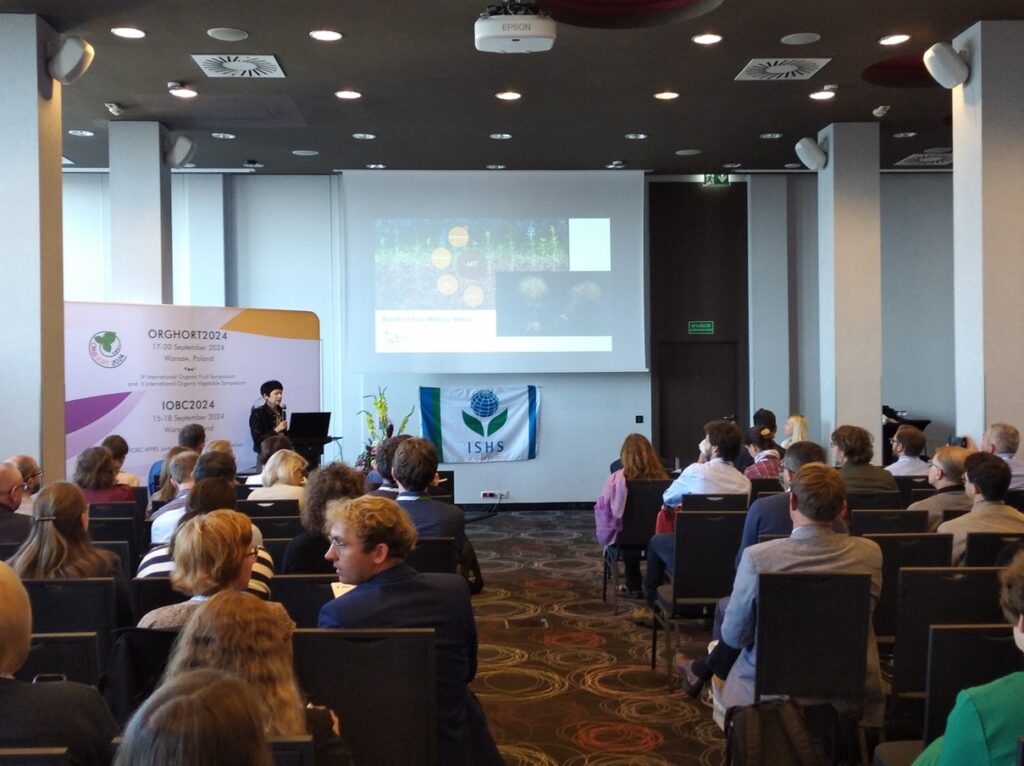
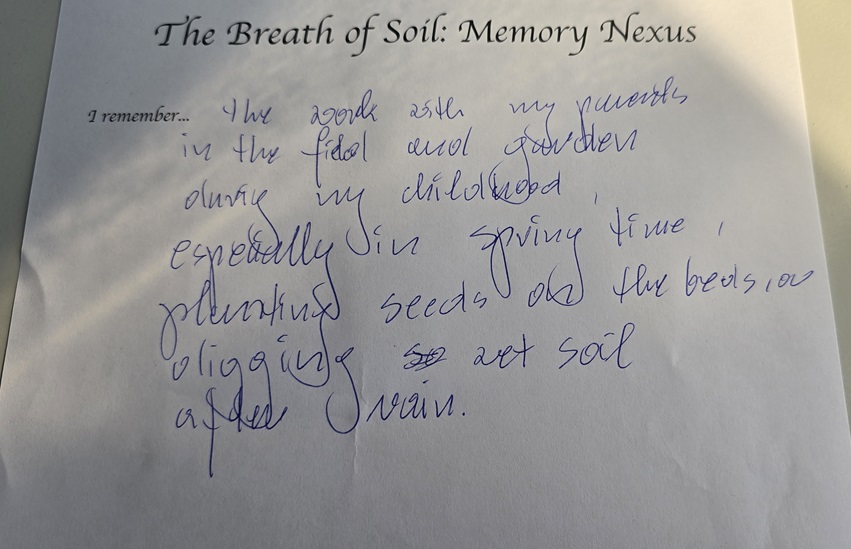
September 17-20, 2024
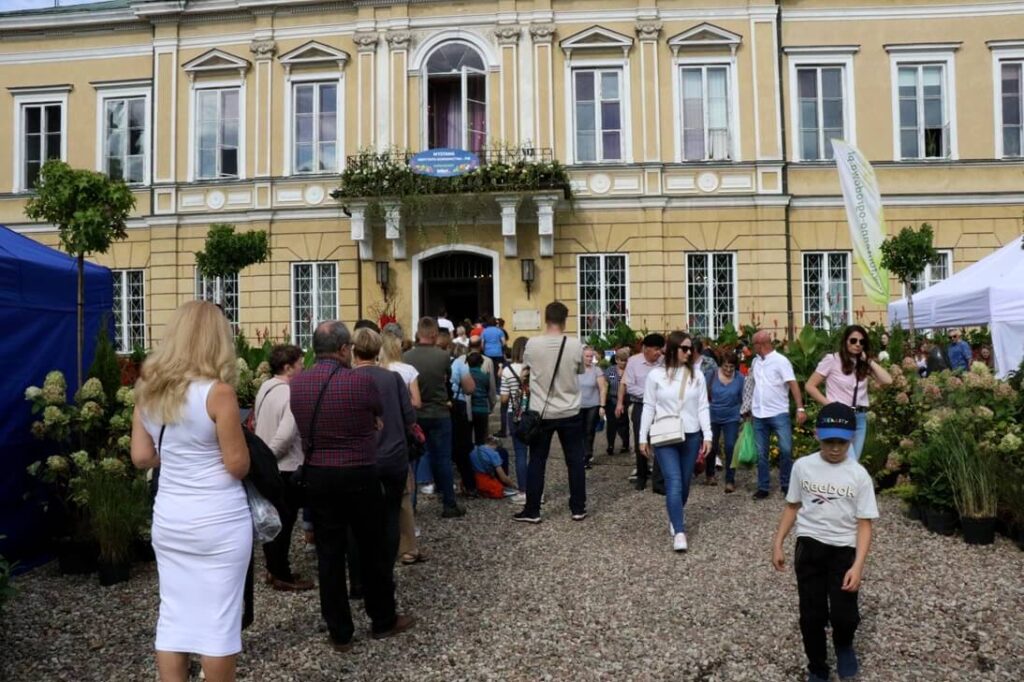
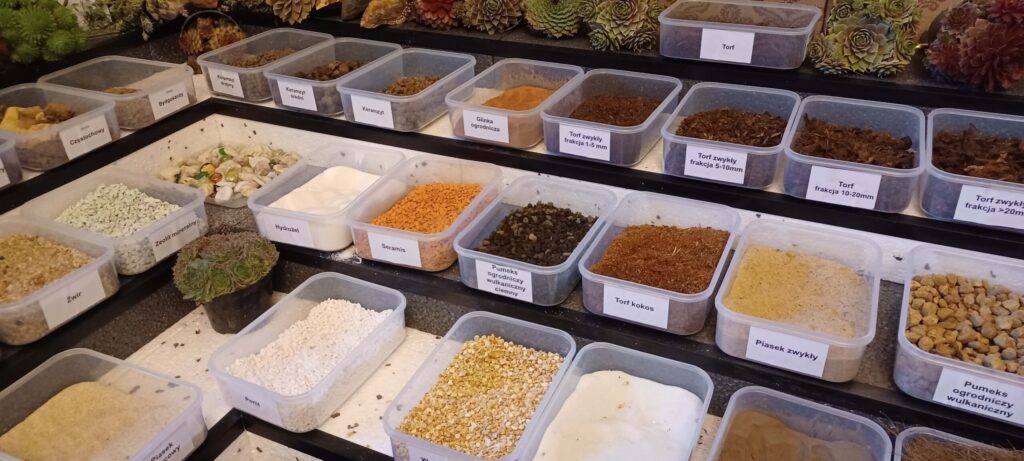
September 14–15, 2024
Skierniewice Festival of Flowers, Fruits, and Vegetables – INHORT Exhibition “Sensory Gardens”, Osada pałacowa, Skierniewice, Poland
The 47th “Flowers, Fruits, and Vegetables Festival” in Skierniewice attracted thousands of visitors with horticultural exhibits and celebrations. A highlight was INHORT’s Sensory Gardens exhibition, marking 20 years of Poland in the EU with a multi-sensory plant experience. SPIN-FERT showcased The Breath of the Earth, an interactive display exploring soil and substrates through scent, sound, and touch. Around 6,000 attendees engaged in hands-on activities on soil biodiversity and received samples of microbial inocula and peat-free substrates.
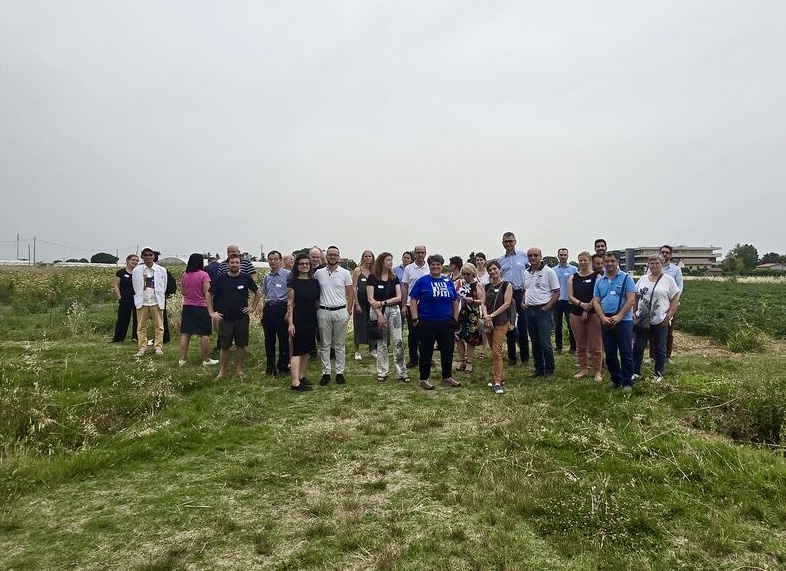
June 19–21, 2024
Kick-off Meeting – SPIN-FERT Project Riccione, Italy
The SPIN-FERT project officially launched with a kick-off meeting held in Riccione, Italy. Representatives from all project partners, including ASN, visited research and industrial sites of RINOVA and ENOMONDO, and engaged in discussions focused on peat-free substrates, circular economy objectives, and soil protection. The meeting included sessions on project coordination, advanced soil quality assessment tools, and creative communication and dissemination strategy through art & science. This successful event set a positive tone for future collaboration and progress toward sustainable soil management practices across Europe. We are proud to be part of this ambitious project! more info
